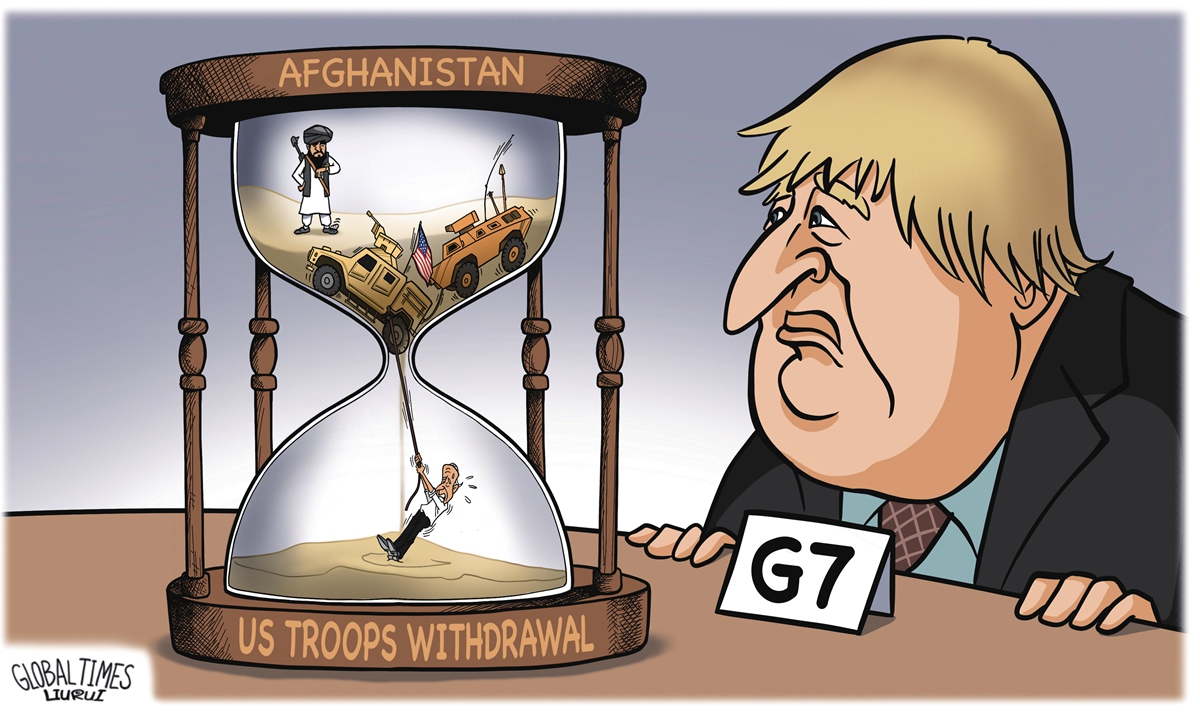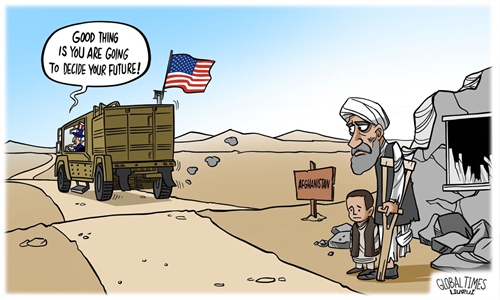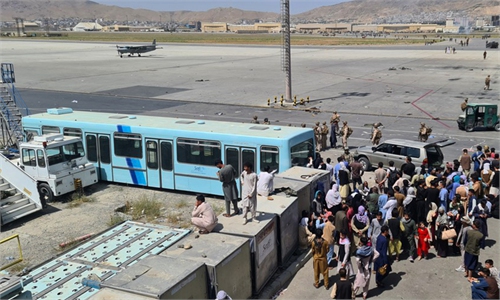G7 members' calculation on Taliban reflects increasingly irreparable fissures within the bloc

Illustration: Liu Rui/Global Times
British Prime Minister Boris Johnson said on Tuesday the Group of Seven (G7) had agreed on a plan to deal with the Taliban, "not just a joint approach to dealing with the evacuation, but also a roadmap for the way in which we're going to engage with the Taliban."
The US and Europe will have different views on the Taliban's legitimacy, very similar to the differences between the two in their relations with Iran. Although NATO has kept the US and Europe relatively close to each other, it has suffered substantial damage from the US debacle in Afghanistan.
Predictably, the fissures within the G7 countries will become increasingly irreparable. The US says its greatest and most valuable assets are its alliances, especially NATO. But President Joe Biden has not even coordinated with his allies on the Afghanistan issue when the US abruptly withdrew from Afghanistan and left a mess behind.
The G7 countries will have their own calculations when it comes to recognition of the Taliban regime. And they will not tightly follow Washington on every issue as they used to.
At this stage, the chances of the West recognizing the Taliban are low because the Taliban is still much the same organization in the West's mind as it was in 2000. And the Taliban has not been removed from the list of terrorist organizations under United Nations' resolutions. This constitutes a fatal weakness in the Taliban's diplomacy. As a result, G7 countries are unlikely to recognize the Taliban any time soon.
Western attitudes toward the Taliban are also influenced by the fact that the defeat of the US by the Taliban is unacceptable to Washington. Moreover, the interaction between the US government and the Taliban is an act of hostility between state and regime. This hostility remains unchanged and makes it hard for the US to recognize the Taliban.
In addition, if the G7 recognizes the Taliban regime, it will be a strong proof that the credibility and international prestige of the US in international affairs has declined sharply. US political elites will not accept the defeat of the US supported Afghanistan government to the Taliban as a failure. However, it is the Taliban now who seize the political power in Afghanistan. So getting the US to recognize and accept the Taliban goes to the core of its credibility and reliability.
It is highly likely that the West will isolate the Taliban, for some time. The West has always adopted double standards in dealing with international affairs. It hurts other countries and their people without any sense of guilt. On the contrary, they believe that chaos is the result of a local ideology that is underdeveloped.
Interestingly, Britain Foreign Secretary Dominic Raab said on August 21 that Britain would have to turn to Russia and China to exercise a "moderating influence" over the Taliban.
One of the immediate reasons for Britain to turn to Russia and China is that the US is no longer helpful or reliable. For the last 20 years, Britain has followed the US in Afghanistan issue, and so many Britain soldiers have died on the battlefield. What has Britain gained by working with the US? Nothing but trouble!
The US could not be counted on for a withdrawal with dignity at this point, and Britain would have to consider other countries to help. Then it thinks of China.
Ostensibly, the UK is asking China and Russia to help clean up the mess in Afghanistan; but it is asking in a rude manner. In fact, Britain's call could be a trap from Britain to make China and Russia scapegoats. It is deliberately exaggerating the influence of China and Russia on the Taliban to cover up the fact that the British government has failed to evacuate its people, and hopes China and Russia can bear the cost and consequences of this mess in Afghanistan.
China should make it clear that political responsibility for the chaos in Afghanistan rests squarely with the US and its Western allies.
The US may have some different opinions on China's and Russia's policy toward Afghanistan, but it is foreseeable that China will act on its own independent judgment.
The Western powers' influence over the Taliban after it seized control of the country is bound to wane. The G7's awkwardness in Afghanistan also shows once again how isolated the political elite groups in the US and the West are, how unpractical their ideas are from reality, and how failed their policies are.
The author is professor at the Institute of International Relations of the China Foreign Affairs University. opinion@globaltimes.com.cn



